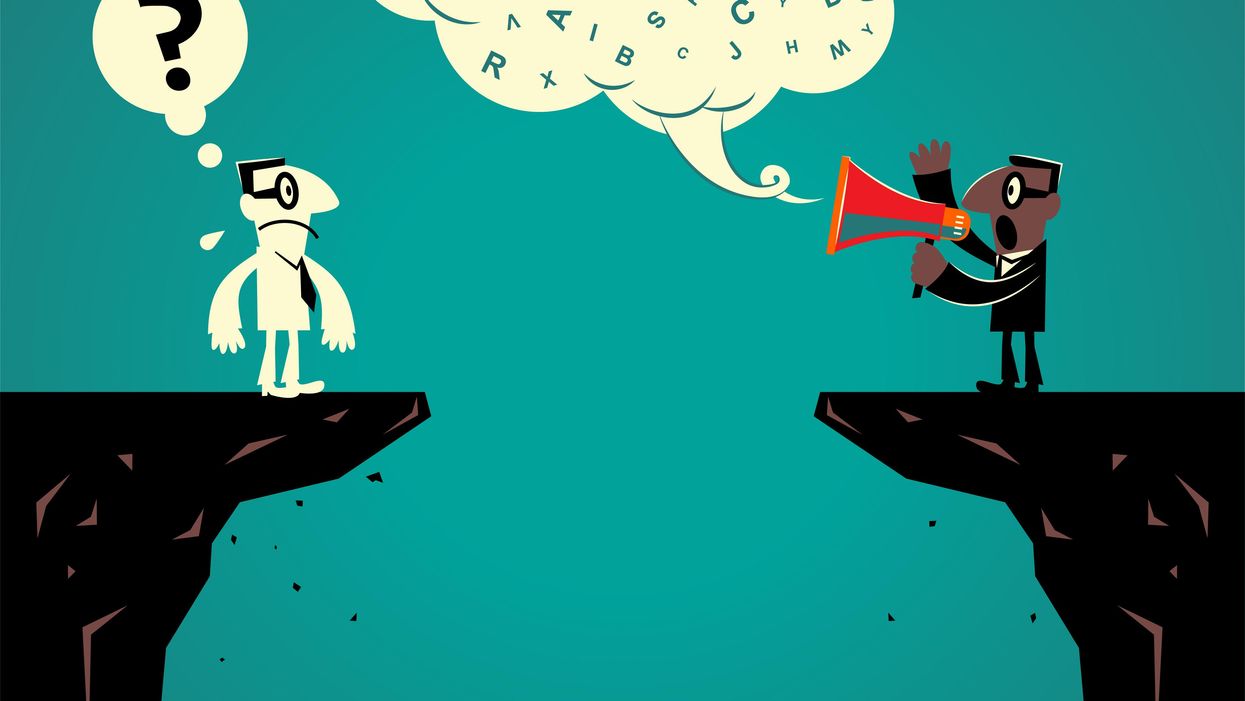While it is nonsensical to try to prescribe a diagnosis to America's current state of civic discourse — from dumping manure on the White House lawn in the name of climate action or attending the Met Gala to demand we "tax the rich" — we often blame partisan politics. But what if part of the problem is that we literally cannot understand one another? And, perhaps worse than that, the institutions we trust to lead the public have stopped trying to communicate to be understood.
Let's get the figures out of the way. The Organization for Economic Cooperation and Development found that 50 percent of U.S. adults cannot read a book written at an eighth-grade level. The National Institute of Literacy estimates that the average American reads at a seventh- to eighth-grade level. Despite these concerns, an analysis of 21 major media outlets found that consumers require a 10th grade reading level to comprehend any of them. Most notably, Fox News and NPR ranked at an 11th grade level, while outlets like MSNBC and Politico exceeded a 12th grade level. This is not an isolated issue. Both the government and media fail to meet Americans where they are in terms of knowledge and vocabulary on critical subjects, such as the Covid-19 pandemic or climate change.
In 2010, President Barack Obama signed the U.S. Plain Writing Act, requiring "federal agencies use clear government communication that the public can understand and use." While the intention was to ensure government institutions communicated with national literacy and comprehension rates in mind, the Covid-19 pandemic has illuminated that some issues cannot be merely legislated away. A fall 2020 analysis of federal and state websites related to Covid-19 failed to meet the standards for communicating with the public identified by leading institutions such as the American Medical Association and National Institute for Health.
These concerns can also be applied to how we talk about climate change. Climate change is a scientific concept at its core, which means it's spoken about in scientific terms. When vital information about climate change is being communicated to the public through words like "mitigation," "adaptation," "carbon neutra," or, even worse, "carbon negative," Americans are lost.
This was especially clear when a Twitter user recently pointed out that his milk boasted being "carbon positive" by 2045. Unsurprisingly, the replies were full of confusion and differing dictionaries of climate jargon. The general consensus was that Horizon Organic really meant "carbon negative," or that the company will capture more carbon than it emits, but didn't want negative language on its branding materials. Other users also mentioned that the terms "carbon negative" and "carbon positive" actually mean the same thing, which, of course, is problematic for the average citizen just trying to make sense of it all.
When the words we use to discuss one of the biggest problems of our life do more to confuse than inform, it's not a mystery as to why climate action has stalled for decades. From 3D data segmentation to workforce solutions and now climate action, I have spent the past five years creating accessible digital media on behalf of organizations. No matter the complexity or mundanity behind policy or scientific information, one thing remains the same — language that requires highly specialized knowledge is found everywhere, and it is intentionally alienating people.
To be clear, the goal is not to make every American an epidemiologist or climate scientist. Instead, communicators in the space need to be more deliberate with the language they use and its readability. At the pandemic's beginning, media outlets came under fire for hiding their Covid reporting behind a paywall. Similarly, if we as science and policy communicators do not work to deliver our information in a way that is accessible to the public, our words are also hidden away, just in plain sight.





















Trump & Hegseth gave Mark Kelly a huge 2028 gift